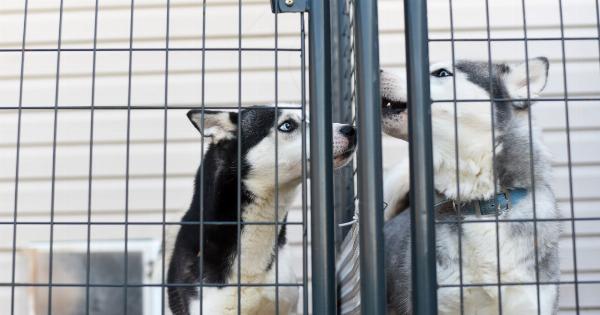As the leaves start to fall and the temperatures start to drop, there are a few new laws regarding pet ownership that every pet owner should be aware of.
In some states, there are new fines and rules that you should know about to avoid getting into trouble with the law. Here are some of the most important things to know about pet ownership this fall.
1. Cleaning Up After Your Pet
One of the most important rules to remember is to always clean up after your pet. Whether you are taking your dog on a walk or letting your cat roam around your backyard, you must make sure to pick up their waste.
Some cities have laws that require pet owners to carry bags with them when they take their pets on a walk. If you are caught not picking up after your pet, you could face a fine of up to $500, depending on the state you live in.
You should also be aware that some cities require you to dispose of pet waste in a specific way, such as in compostable bags or special trash cans.
2. Licensing and Vaccinations
Most states require you to license your pet and keep their vaccinations up to date. This is done to help prevent the spread of diseases and to ensure that pets are correctly identified in case they get lost.
To avoid hefty fines, make sure your pet is licensed and has up-to-date vaccinations. Some cities also require you to have your pet spayed or neutered, so be sure to check your local laws as well.
3. Leash Laws
Many cities have rules about when and where you can have your pet off-leash. Some parks have designated off-leash areas, while others require your pet to be on a leash at all times.
In some cities, walking your pet off-leash can result in a fine of up to $1,000. Additionally, if your pet becomes aggressive or bites someone while off-leash, you could be held liable and face even more fines.
4. Noise Pollution
If you have a noisy pet, you could be in violation of a noise pollution law.
Dogs that bark incessantly can cause a disturbance to your neighbors, and if they call animal control, you could be fined anywhere from $50 to $500, depending on the severity of the problem. If your pet is disturbing your neighbors, try to tackle the issue by training your pet or finding ways to reduce their barking or meowing. You can also talk to your local animal control office for advice on how to resolve any noise complaints.
5. Confinement Laws
Some cities have laws that require pets to be confined to their owners’ property or to have a physical barrier that keeps them on the property.
If your pet is prone to escaping, it’s important to make sure they are safely contained within your home or yard. Failing to confine your pet appropriately can result in fines of up to $500. If your pet gets loose and causes damage or hurts someone, you could also be held liable for the costs of any repairs or medical bills.
6. Pet Limitations
In some cities, there are limits on the number of pets that you can have. These limits can vary from city to city and may depend on the type of pet you have. For example, some cities only allow you to have two dogs, while others may allow up to four.
If you exceed these limits, you could face fines or even have your pets removed from your home. Be sure to check your local laws and regulations to make sure you are in compliance.
7. Protecting Wildlife
If you have an outdoor cat, it’s essential to make sure they don’t harm wildlife. Many cities require cats to be kept indoors or on a leash to prevent them from hunting and killing birds and other small animals.
Additionally, if your pet harms a wild animal, you could be fined or even face criminal charges. Be sure to supervise your pets when they’re outside and make sure they don’t stray too far from your property.
8. Reporting Animal Abuse
If you suspect that an animal is being mistreated or abused, it’s important to report it to animal control or law enforcement right away.
Many cities have laws that require you to report animal abuse, and failing to do so can result in fines of up to $1,000. If you see an animal that appears to be in distress, make sure to take action and report it immediately.
9. Keeping Your Pet Secure
To prevent your pet from running away or getting lost, it’s a good idea to make sure they are properly identified. This can be done by microchipping your pet or having a collar with identification tags.
If your pet gets lost and is brought to a shelter or animal control facility, they will scan for a microchip or check their tags to identify them and contact you. Make sure your contact information is up to date on your pet’s tags and that you keep their information on file with the microchip company.
10. Being a Responsible Pet Owner
One of the most important things to remember when owning a pet is to be a responsible owner. This means making sure your pet is well taken care of, properly trained, and not causing any problems for others.
If you are a responsible pet owner, you’re less likely to encounter fines or legal trouble related to your pet. Remember to always be respectful of others and their property, and to keep your pet safe at all times.






























